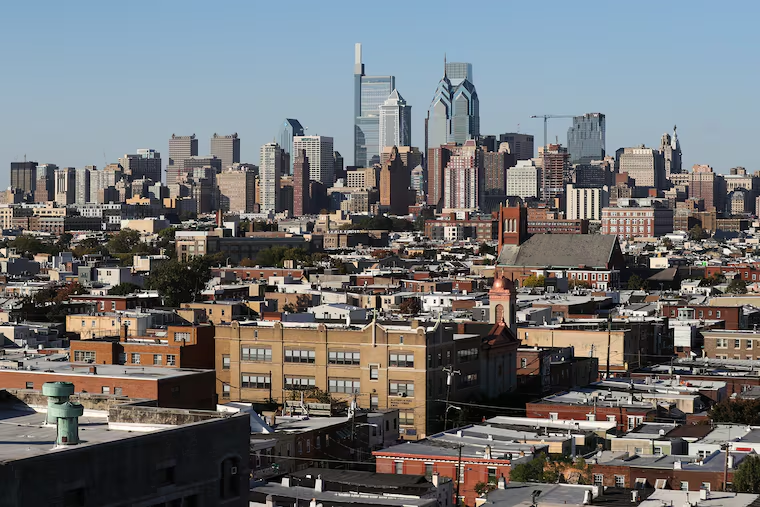City Council wants Philly to pay for urgent property repairs and bill the owners
If an owner doesn't pay for repairs, the city would place a lien on the property, so that when it is sold, the city recoups the investment.

Philadelphia is one step closer to repairing safety hazards in properties owned by absentee landlords and in vacant homes and billing the owners.
City Council on Thursday passed a bill that defines certain property maintenance code violations as public nuisances and allows the Department of Licenses and Inspections to arrange for repairs to try to minimize negative impacts on residents and near neighbors.
The bill applies to certain multifamily buildings and vacant single-family buildings and includes repairs for violations related to heating and plumbing systems. Faulty private sewage pipes, for example, can damage surrounding properties. And malfunctioning heating systems in a multifamily building can leave residents cold in their homes. The legislation allows L&I to add other significant property code violations to the repair list.
» READ MORE: Philadelphia’s affordable housing strategy depends on repairing existing homes
The legislation, passed by a 16-0 vote, gives a property owner one month to repair or begin to repair problems. If the owner does not act, the department would bill the owner for repairs. If 30 days pass without a payment, the city would place a lien on the property, so that when it is sold, the city recoups the investment.
“I get calls on a day-to-day basis of bad actors and the tenants having to figure out a way how to live in humane conditions when individuals aren’t being responsible,” Councilmember Kenyatta Johnson said Thursday, voicing his support for the bill.
Sarah Adamo, legislative affairs manager for L&I, said at a June Council hearing that Mayor Jim Kenney’s administration supported the intent of the bill but that concerns about capacity to implement the program and liability for repairs prevented the administration from endorsing the plan.
In the next few weeks, Council members plan to convene a working group with the administration to figure out funding and implementation and address L&I’s concerns. If Kenney signs the bill, it would take effect one year later.
New York, Washington, and Los Angeles are among the cities that have similar programs, according to Councilmember Curtis Jones Jr., who introduced the bill.
“Because they understand with a homeless problem that we all face, it is better ultimately to let people live in their homes than to provide temporary and alternative housing,” he said in a June Council hearing. “If we’re going to save affordable housing in this town, this is a clear tool to do that.”
Jones told the story of a woman renting a home who had waste in her basement and a landlord who didn’t fix the pipe. He said L&I told the woman her home was uninhabitable, and she had to leave. Jones said he would have liked to see the city fix the problem and return the woman to her home.
» READ MORE: Unclear ownership impedes upkeep and sale of houses in Philly. The city is working on a solution.
Typically, L&I needs permission from the property owner or landlord to access the property. A tenant could potentially grant access to certain areas but not others, such as where utilities are.
“Outside of voluntary access or a court order, L&I would simply not be able to enter the property, and the repairs could not be made,” Adamo said.
L&I also would struggle to handle the excess work, including prioritizing properties with open violations, selecting contractors, and ensuring work is adequately completed, she said.
City workers would not be familiar with the design and operations of systems and reasons why systems aren’t working. The city could be held liable for injury or property damage associated with repairs. Problems that occur after the repairs could be blamed on the city, Adamo said.
The overall cost of repairs could be significant. “The administration is apprehensive about our ability to recover funds from the property owner after the repairs have been completed,” she said. “Without adequate funding, the desired goal of this legislation would not be achieved.”
In the past, Jones said, the city has repaired party walls or leaky roofs that impacted neighbors’ properties. He said the city can mitigate risk through insurance policies and already performs work on private property for which it is liable.
Property maintenance “directly impacts the quality of life, the health, and the safety of every resident of the city of Philadelphia,” Councilmember Bobby Henon said at the June hearing. “Residents of the city of Philadelphia are frustrated.”